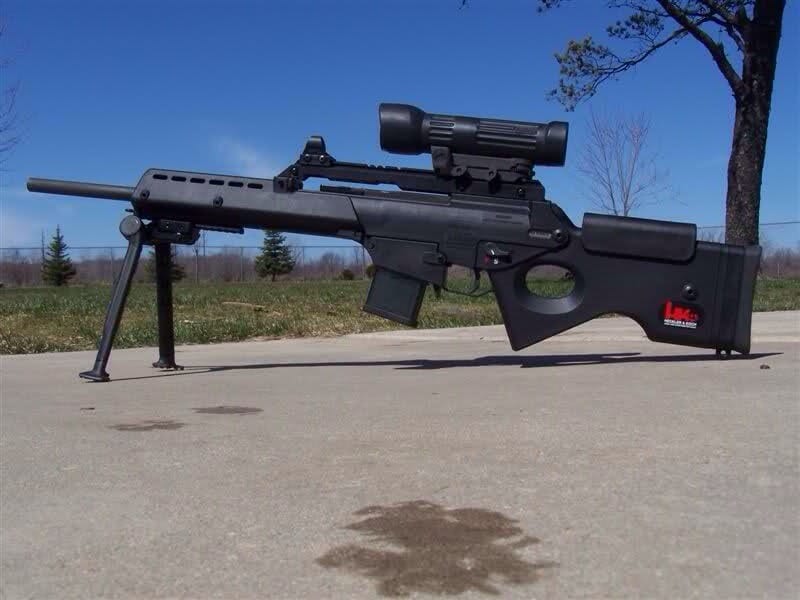FIREARMS legislation must change if civilian versions of military type weapons are to be outlawed, a judge has said.
Limerick District Court Judge Eugene O’Kelly made his comments at an appeal hearing for two Limerick men challenging the decision of the Divisional Chief Superintendent to refuse them both gun licences for civilian sports versions of semi automatic assault rifles.
Having originally held a licence for a Heckler and Koch .223 semi automatic rifle in 2007, the Limerick man sought renewal for his weapon over the following five years but failed to get his application granted.
The second County Limerick man before the court had sought a first time application for a similar grade weapon and this had been refused by Limerick’s most senior garda.
Five grounds for the refusal were outlined by Chief Superintendent Dave Sheahan in his evidence where he specified that it was garda contention that the weapon in question was a German manufactured military style weapon; it was an assault rifle; there was no requirement for a gun of this calibre by the applicant; the magazine could hold ten rounds and finally there was a public safety concern to the proliferation of such a firearm.
The court was told however, that both men came before the court with impeccable characters, had Irish military level experience with firearms and had made extensive provisions at their homes for the safe keep of the weapons. Details of how the weapons would be transported to the firing range were also outlined.
The court heard that the men had separately installed gun safe cabinets at their homes with one having installed a former double door bank vault to be used as gun storage unit.
Both of the applicants were involved in competition shooting with one having shot abroad with his rifle in the past.
Expert witnesses were called for both sides in arguing the points before the court including two detective inspectors from the ballistics division of garda headquarters in the Phoenix Park who gave evidence on behalf of the State.
An independent firearms expert, understood to be one of the leading figures in the field, gave evidence on behalf of the two appellants outlining that the rifles were not military grade and had been considerably modified to civilian sports versions.
In his judgement to allow the appeals of both men seeking licences for the high-powered guns, Judge O’Kelly said that the issue was the “legislation and not the men. It is the legislation that does not give much assistance. It has not got to the kernel of the issue.”
Judge O’Kelly said that Chief Superintendent made “a bona fide refusal of the firearms application based on the information he had.
“However, it is the responsibility of the legislator if the law is to either outlaw or allow civilian versions of military style weapons”, he concluded.
Both applicants were granted their gun licences but the court was told that neither were entitled to their legal costs for counsel representation.



